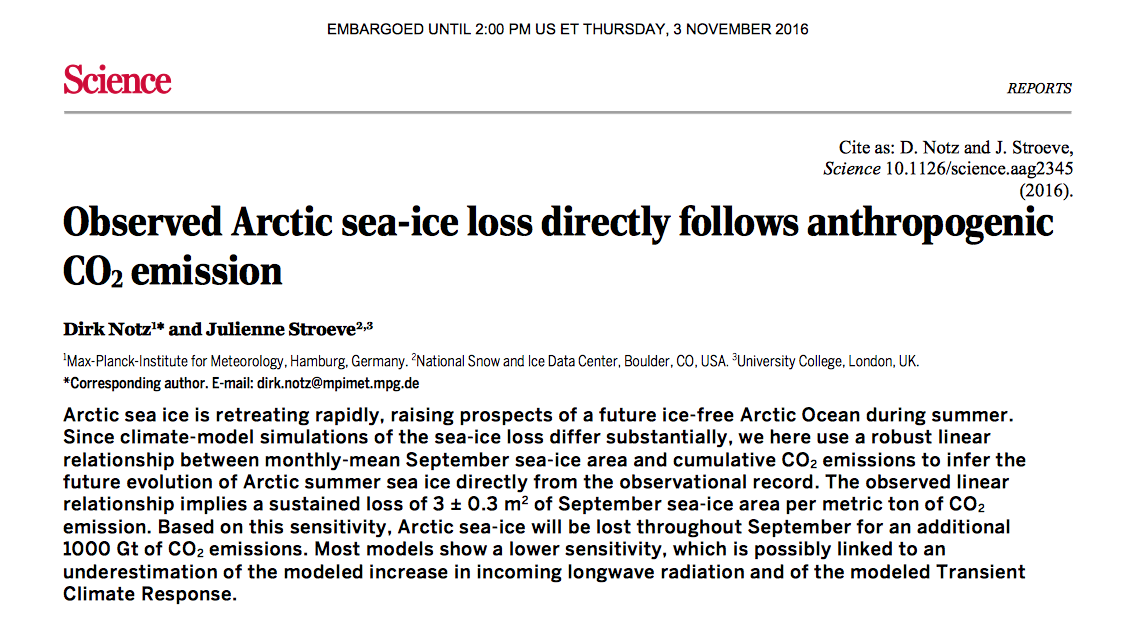Al Gore Predicts No Arctic Ice In 2013 and Fails, So Now Al Gore Again Is Predicting When The Arctic Will Be Ice-Free
he data reveal that for every metric ton of carbon dioxide that’s emitted, 3 meters squared of sea ice is lost.
The study predicts around 2040 or so for an ice-free Arctic.
The abstract and media release is below.
###

###
Predicting When the Arctic Will Have an Ice-Free Summer
For every metric ton of carbon dioxide that’s emitted into the atmosphere, there is a direct correlation in the amount of Arctic sea ice that is lost, a new study shows. Scientists have had difficulty predicting when the Arctic will be completely free of ice during the summer months, but this new analysis could help provide much more accurate predictions of such an occurrence. Dirk Notz and Julienne Stroeve analyzed Hadley Centre Sea Ice and Sea Surface Temperature data over time, deriving a linear relationship between the average monthly abundance of sea ice in the Arctic in September and cumulative carbon dioxide emissions, for a roughly 30-year period. The data reveal that for every metric ton of carbon dioxide that’s emitted, 3 meters squared of sea ice is lost. The authors used this robust relationship in a collection of climate models that are part of the Climate Model Intercomparison Project 5 (CMIP5), to project Arctic summer sea ice loss. These models often underestimate the extent of ice loss, they found; Notz and Stroeve suggest that CMIP5 models, based on existing knowledge of processes that shape ice loss, may not be accurately capturing the amount of incoming longwave radiation from the Sun, and the climate’s related response. The results of this study suggest that any measure to mitigate carbon dioxide emissions will directly slow the ongoing loss of Arctic summer sea ice. Therefore, the authors note that achieving a global warming target of 1.5°Celsius, which would involve reducing carbon dioxide emissions, would help extend the lifespan of diminishing summer ice.
Comments
Post a Comment